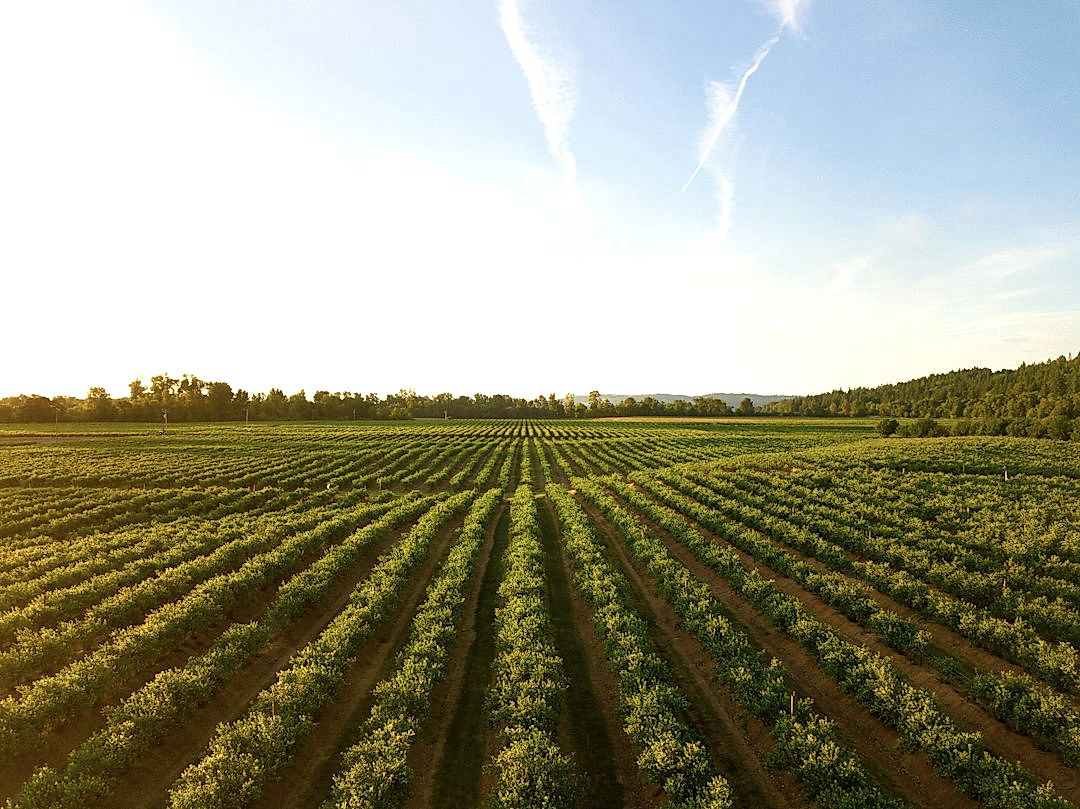As our awareness of environmental impacts continues to grow, the importance of sustainable farming methods becomes increasingly pressing.
Whether it’s reducing water usage, minimizing soil erosion, or promoting biodiversity, eco-friendly practices are crucial in today’s agricultural industry.
In order to feed our global population without further degrading our planet, farmers are opting for smarter, more responsible techniques.
These strategies, thoughtfully applied, can create healthier, more fertile lands, and ultimately, safer, more nutritious produce.
This article seeks to delve into these approaches and their implications on our food chain.
Let us explore how we can nurture the environment while simultaneously nurturing ourselves.
Contents
- Environmental Strategies For Eco-friendly Produce Farming
- 1. Prioritize organic and natural farming practices.
- 2. Implement Water-Efficient Irrigation Systems
- 3. Encourage Crop Diversity and Rotation
- 4. Reduce reliance on synthetic fertilizers.
- 5. Utilize Renewable Energy Sources
- 6. Enhance Soil Conservation Methods
- 7. Promote Integrated Pest Management Solutions
- The Bottom Line
Environmental Strategies For Eco-friendly Produce Farming
1. Prioritize organic and natural farming practices.
Organic and natural farming practices hold one of the most efficient strategies to preserve the environment while producing. The primary principle of organic agriculture is to allow nature to provide the solutions to pest problems and crop growth, rather than relying on synthetic chemicals or genetically modified organisms.
Adopting organic farming techniques involves the use of natural fertilizers, crop rotation, and composting which all serve to replenish the soil’s nutrients, foster biodiversity, and reduce the need for chemical applications.
Furthermore, gauging the farm’s fertility on the basis of the health of its soil, water, and ecosystems, rather than the yield volumes, characterizes sustainable and organic farming.
Sustainable farming ensures the natural resources are not depleted or polluted, thereby preserving them for future generations.
Another important aspect of organic farming is the use of heritage or heirloom seeds. These varieties have been passed down through generations because their characteristics make them easier to grow organically.
Moreover, by buying organic and natural products, consumers can play a significant role in supporting environmentally friendly practices.
The increased need for food security has stirred an increasing awareness about the importance and value of organic agriculture amongst farmers and consumers alike.
The United Nations’ Food and Agriculture Organization (FAO), recommends organic farming as a cornerstone for sustainable farming and food security.
Organic farming practices also play a crucial role in the fight against climate change. They help to decrease the emission of greenhouse gases, increase carbon sequestration, and foster resilience to changes in weather patterns.
Organic farming promotes biodiversity by providing a varied habitat for wildlife. This subsequently leads to a more balanced and resilient ecosystem.
In addition, organic farming naturally deters pests without the use of harmful insecticides, ensuring a safer environment for both the farmer and the consumer.
Supporting small-scale organic farmers can have a positive impact on the community, by providing jobs and promoting local economies.
Taking all these different aspects into account, it’s clear that a shift to prioritize organic and natural farming practices could greatly benefit the environment and promote sustainability on both, a local and global level.
There is a famous saying among organic farmers: “We do not inherit the earth from our ancestors, we borrow it from our children.” This truly reflects the essence of organic and natural farming practices, emphasizing not just the survival of the present, but the survival of future generations as well.
2. Implement Water-Efficient Irrigation Systems
Water is a critical component in farming, with agriculture accounting for up to 70% of freshwater withdrawals globally.
As such, implementing water-efficient irrigation systems in farming is essential in managing this precious resource better.
There are diverse types of efficient irrigation techniques, such as drip irrigation and sprinkler systems, each with its own perks and drawbacks.
Drip irrigation, for example, sends water directly to plant roots, significantly minimizing water wastage through evaporation or runoff.
This system, however, requires a considerable initial investment, but it can reduce water usage by up to 60% compared to traditional irrigation methods.
On the other hand, sprinkler systems, while using more water than drip irrigation, can cover a large area and are easier to set up, hence offering an alternative solution for large-scale farmers.
The decision on which system to implement can be informed by factors such as crop type, soil characteristics, and budget.
Couple these with interventions such as rainwater harvesting and mulching, farmers can drastically improve their water-efficiency.
Farmers can also incorporate more advanced techniques like the use of soil moisture sensors and automated irrigation systems to optimize water consumption.
These sensors provide data on exact soil moisture levels, allowing for an irrigation process informed by real-time needs rather than a fixed schedule.
This significantly reduces the risk of over-irrigating, a factor that not only wastes water but can also lead to problems like waterlogging and soil salinity.
Flexibility and adaptability in irrigation practices are key in the face of climate change and other environmental challenges.
By making strategic shifts towards water-efficient irrigation systems, farms can become more resilient and sustainable.
Moreover, these practices can greatly contribute to reducing the agriculture sector’s overall environmental footprint, helping to conserve earth’s finite water resources while producing food in a more sustainable manner.
Therefore, the implementation of water-efficient irrigation methods should be a top priority for farmers worldwide who are interested in eco-friendly produce farming. This is not only good for the environment but also a great step towards sustainable profitability.
3. Encourage Crop Diversity and Rotation
One of the fundamental strategies for eco-friendly produce farming centers on encouraging crop diversity and rotation.
Most contemporary farming practices are marked by monocultures, a practice where the same crop is grown in the same area each year.
This method depletes the soil of essential nutrients and can lead to increased vulnerability to pests and diseases, requiring farmers to use synthetic fertilizers and harmful pesticides.
Nevertheless, implementing crop diversity and rotation can help to mitigate these problems significantly, enhancing a more sustainable and eco-friendly form of produce farming.
Crop diversity refers to growing a variety of different crops in the same area, enhancing biological diversity and making farming systems more robust and resilient.
Not only does this approach benefit the environment, but it can also have significant economic advantages for farmers in terms of reducing the risks associated with crop failure and enhancing market opportunities.
Crop rotation is a complementary strategy that involves alternating the type of crop grown in a particular field from season to season.
This method helps to break disease and pest life cycles, reduce soil erosion and improve soil fertility by allowing different crops to replenish the nutrients that the previous ones used.
For instance, nitrogen-fixing legumes can be rotated with nutrient-hungry crops such as maize or rice, naturally replenishing the soil’s nutrient levels and reducing reliance on synthetic fertilizers.
Moreover, crop diversity and rotation also work together to protect biodiversity on the farm, providing habitat for a wider range of beneficial insects and organisms.
These native species can provide vital ecosystem services such as natural pest control and pollination, further enhancing yields and reducing reliance on chemical inputs.
Encouraging and implementing crop diversity and rotation, therefore, provide a holistic approach to sustainable and eco-friendly farming that respects the environmental balance and contributes to long-term productivity.
Embracing such practices is not only crucial in addressing environmental concerns but is also a sensible approach for the long-term viability and profitability of farming enterprises.
Much can be done to promote these practices, ranging from policy and subsidy changes, farmer training and education, to shifts in consumer behavior and demand for more diverse and sustainably produced food products.
Certainly, embracing crop diversity and rotation can take us a long way towards creating more resilient, sustainable, and eco-friendly farming systems.
4. Reduce reliance on synthetic fertilizers.
The overuse of synthetic fertilizers has a hugely detrimental impact on the environment, polluting surface and groundwater, damaging soil health, and causing greenhouse gas emissions.
An effective strategy to counter this is to reduce reliance on such fertilizers in organic farming practices.
This is necessary as the persistence of these harmful chemicals in the environment can lead to various ecological imbalances.
Switching to organic and natural fertilizer alternatives is a crucial step towards more eco-friendly produce farming.
By using organic manure, compost, green manure, and biofertilizers, farmers can maintain soil health and productivity while reducing their environmental footprint.
The application of compost not only supplies nutrients but also increases the organic matter content in the soil.
It enhances soil structure, water holding capacity, and supports the growth of beneficial microorganisms.
Green manure, on the other hand, is a kind of cover crop grown to be ploughed back into the soil, improving its fertility and structure.
Biofertilizers are another sustainable alternative to synthetic fertilizers.
These include the introduction of beneficial microbes into the soil, which help plants to naturally fix nitrogen from the atmosphere, reducing the need for synthetic nitrogen fertilizers.
Other forms of biofertilizers help in dissolving phosphorus in the soil making it more available for plant uptake, boosting plant health and growth without causing environmental harm.
Another important aspect to consider is precision farming.
By using modern technologies like GPS and remote sensing, farmers can apply the right amount of fertilizers at the right time, reducing unnecessary usage.
This approach is much more sustainable, as it minimizes nutrient runoff into water bodies, one of the primary causes of water pollution.
The reduction in synthetic fertilizer use requires policies that support sustainable farming.
Farmers should be encouraged and incentivized to adopt more ecological methods, which will improve the health of the planet.
5. Utilize Renewable Energy Sources
Farming practices have traditionally been reliant on non-renewable sources of energy, leading to concerns about environmental degradation and sustainability.
One of the strategies to foster eco-friendly produce farming is to utilize renewable energy sources.
This not only promotes the sustainability of the farming operations but also contributes significantly to reducing carbon emissions.
Renewable energy sources such as solar, wind, and geothermal provide a sustainable and clean source of power that meets the demands of daily farming operations.
Embracing renewable energy in farming ensures long-term sustainability and helps combat climate change by reducing pollution.
Farming systems equipped with solar power systems can generate enough energy for irrigation, heating, cooling, and other electrical needs.
The use of wind energy, on the other hand, provides a viable solution in locations that are not suitable for solar power.
The adoption of these renewable energy sources helps farmers reduce their energy costs while decreasing the environmental footprint.
Moreover, renewable energy systems have a lower maintenance cost than traditional systems, which is a significant benefit for farmers.
Recently, the concept of bioenergy derived from organic waste materials is also gaining traction in the farming industry.
Bioenergy presents a closed-loop system whereby waste materials from the farm are transformed into energy, thus minimizing waste and optimizing resources.
Government incentive programs are also available in many countries to support farmers in the transition towards renewable energy use.
These programs offer financial aids or subsidies to farmers who are willing to invest in renewable energy systems.
By moving towards renewable energy, farmers not only ensure the sustainability of their operations but also contribute to a larger, global effort of combating climate change.
Overall, the utilization of renewable energy sources in farming is an effective strategy to achieve eco-friendly produce farming._
6. Enhance Soil Conservation Methods
Enhancing soil conservation is an integral component of eco-friendly produce farming.
Soil conservation not only supports the sustainable health and productivity of the land, but also positively affects climate change by sequestering carbon.
There are various methods that can be adopted by farmers to enhance soil preservation and health.
Knowledge of soil types and management practices are critical in soil conservation, as they directly impact the erosion rate and fertility of the land.
A fundamental technique is the use of cover crops, which act to physically protect the soil from erosion and add organic matter to improve soil structure.
Furthermore, minimizing soil disturbances, like plowing and tilling, preserves the structure of the soil and increases its ability to store water and nutrients.
Composting is another organic soil management method that is highly beneficial for soil conservation.
It involves the breakdown of organic waste materials, which leads to the production of rich, fertile compost that enhances the soil’s physical properties and nutrient content.
Conservation tillage and contour farming can be employed to lessen soil erosion, thereby conserving the soil and its productive capacity.
It is important for farmers to monitor soil fertility regularly and manage nutrients effectively and responsibly.
Maintaining the soil’s pH in the optimum range is also essential to ensure that existing nutrients are available for plant uptake and utilization.
Another soil conservation strategy is the use of buffer zones and windbreaks to shield the soil from wind and water erosion.
Lastly, precision farming techniques can be used to apply precise amounts of water and nutrients in specific areas, thus reducing wastage and preserving the quality of the soil.
Even though some soil conservation techniques require an initial investment, they can result in long-term financial savings for farmers and also benefit the environment in significant ways.
The collective adoption of these soil conservation strategies by farmers globally can have a profound impact on mitigating climate change, boosting biodiversity, and ensuring a sustainable future for agriculture.
7. Promote Integrated Pest Management Solutions
Pest management is a critical factor to consider when it comes to producing eco-friendly crops.
Simply eradicating pests is not the solution as it can disrupt the ecosystem balance and can also result in the development of pest resistance to pesticides.
Furthermore, reliance on chemical pesticides leads to contamination of soil, water and air, thereby undermining the efforts towards eco-friendly farming.
Therefore, the concept of Integrated Pest Management (IPM) is a suitable alternative in achieving a balance between pest control and minimal harm to the environment.
IPM is a proactive strategy that focuses on preventing pest problems by monitoring fields, identifying pests, and making informed decisions on control measures.
In essence, the approach emphasizes the growth of a healthy crop with the least possible disruption to agro-ecosystems, while encouraging natural pest control mechanisms.
This involves using a variety of techniques including cultural, mechanical and biological controls and pesticides only as a last resort.
One example of cultural control could be crop rotation which tends to disrupt pest life cycles, thus preventing them from becoming a significant problem.
Biological control can involve the introduction of natural predators or parasites that target specific pests.
IPM strategies can help reduce the use of harmful pesticides, reduce cost of crop production, enhance biodiversity and promote overall ecosystem health.
However, successful implementation of IPM requires detailed knowledge and understanding about each pest species, their life cycles, interaction with the environment and their natural enemies.
Besides, it’s important to regularly monitor and assess pest population levels, and the damage caused, for effective decision-making.
Educating and training farmers about IPM techniques is of paramount importance to ensure its successful application.
Many agricultural extension programs are currently focused on promoting the use and advantages of integrated pest management.
It is a holistic method that supports not just the growth of healthy, organic crops but also ensures the sustainability of farming practices.
In conclusion, backing IPM solutions is a potent strategy for eco-friendly produce farming and bolstering environmental sustainability.
The Bottom Line
Clearly, minimizing the impacts of agriculture on the environment necessitates the proactive embodiment of sustainable practices.
These hinge on prioritizing organic and natural farming methods, enhancing water efficiency in irrigation, fostering crop diversity, and decreasing dependence on synthetic fertilizers.
Additionally, it revolves around tapping into renewable energy sources, upscaling soil conservation techniques, and integrating pest management measures.
Such strategies not only ensure the least possible harm to the environment, but they also guarantee improved crop yield, sustainability of farming operations, and ultimately, the enhancement of the health and wellbeing of consumers.
Firmly adopting and implementing these practices promises a more sustainable future for the environment and the agriculture industry alike.




